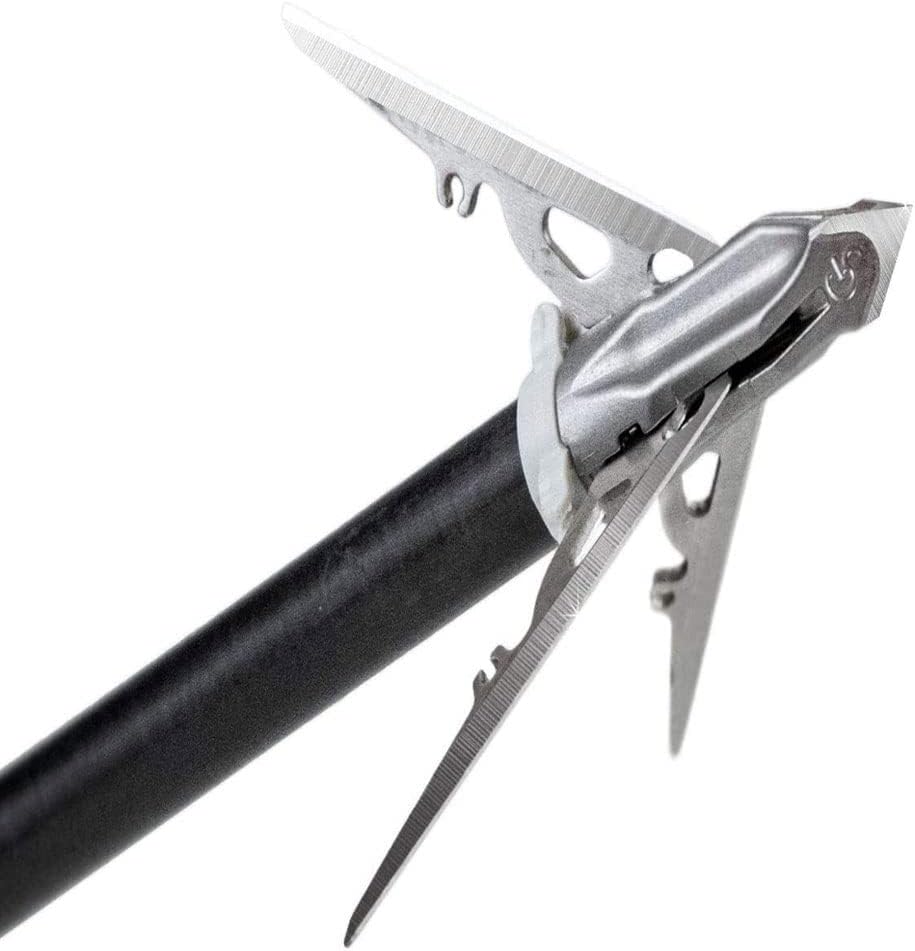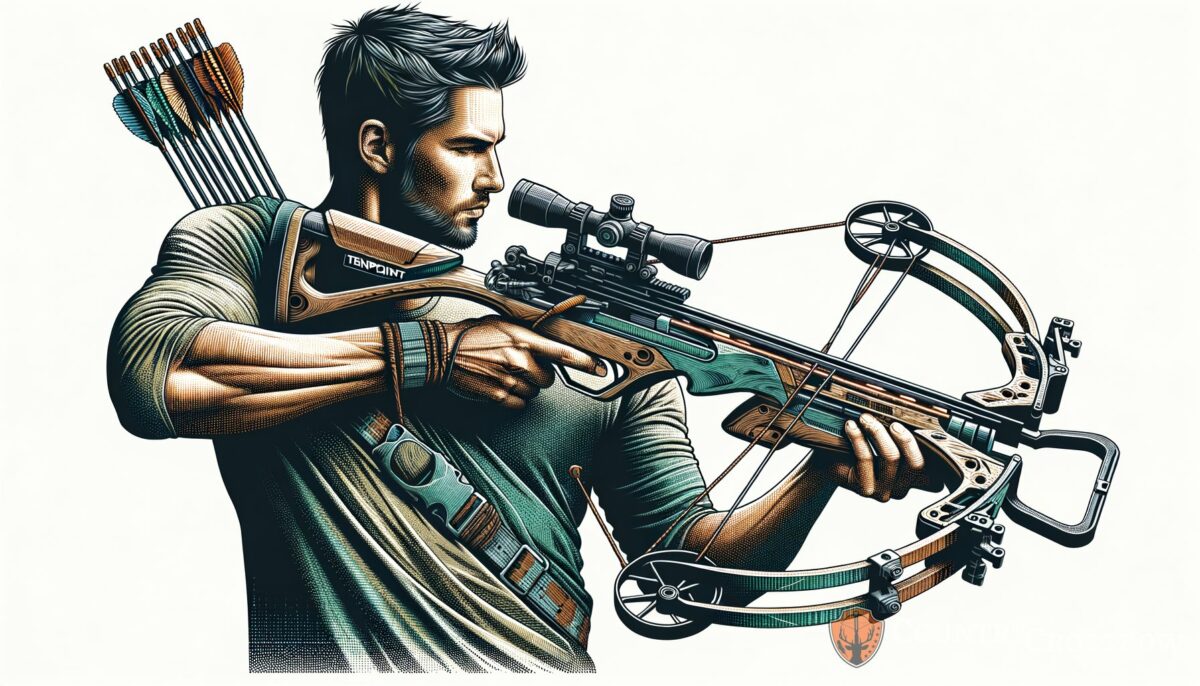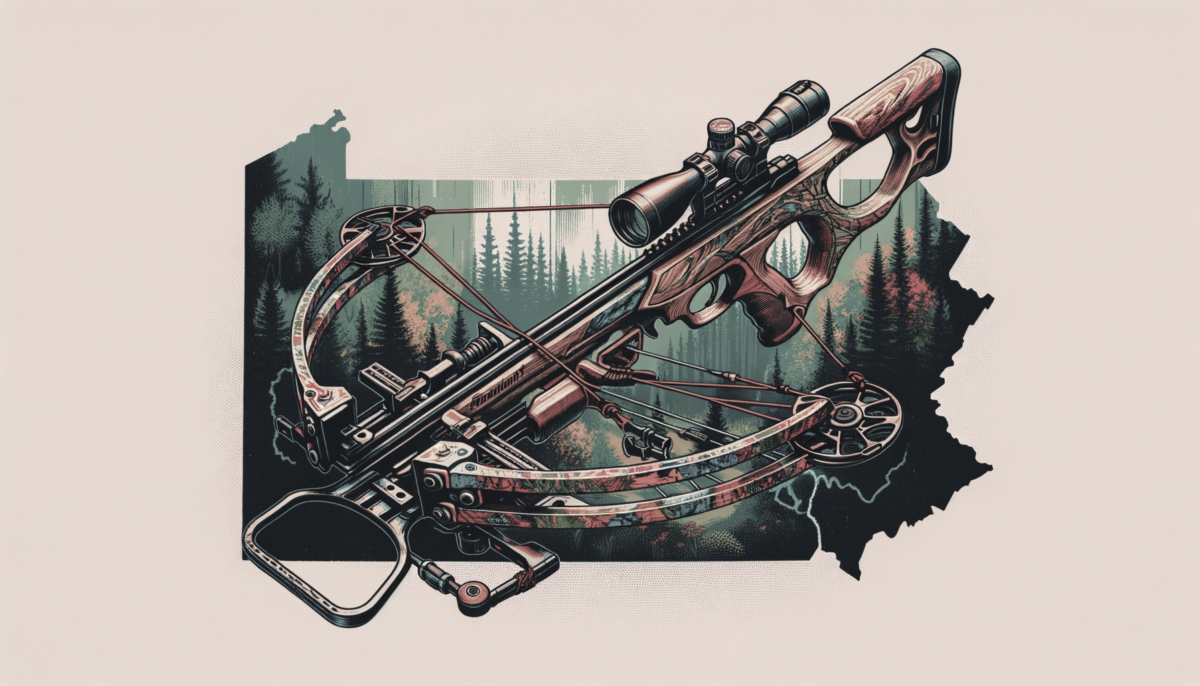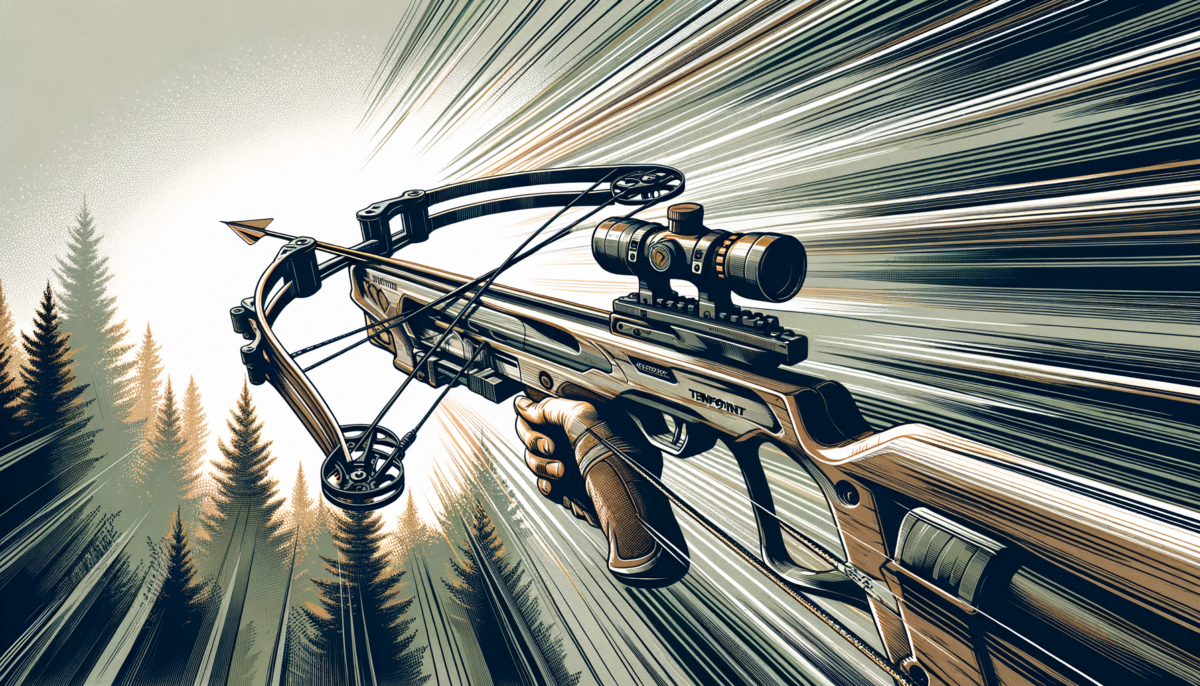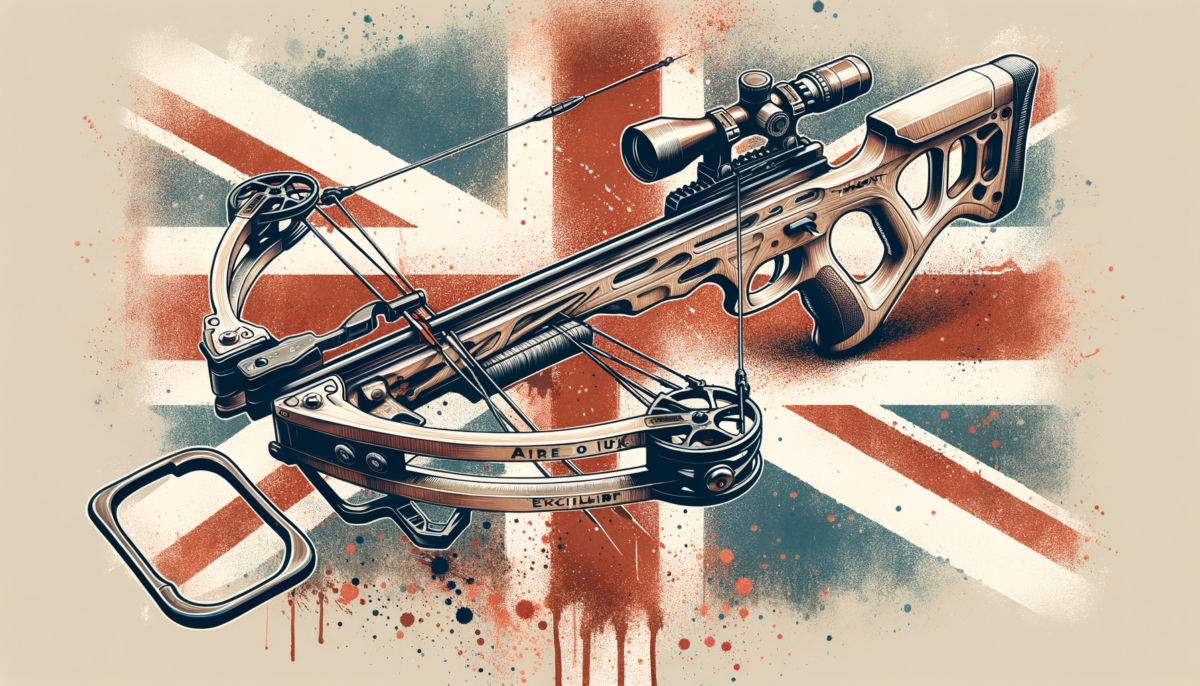Have you ever wondered what truly sets the broadheads apart from the rest? We’ll dive into the world of crossbow broadheads, focusing on the hallmarks of quality—accuracy, penetration, sharpness, and durability.
By the end, you’ll have a clear picture of what to look for in your next purchase and which products hit the bullseye for quality and performance.
Key takeaways
- My top recommendation for boarheads is the G5 Outdoors Megameat.
- The G5 Montec is preferred for significant damage and rugged use.
- Grim Reaper Carni-FOUR features a unique 4-blade design for extensive cutting diameter and optimal performance with heavy draw weight setups.
What is a broadhead and why it matters
Hunting broadheads are the razor-sharp points affixed to the end of an arrow shaft and are a critical component in bowhunting and archery. They are specifically designed to deliver the lethal blow necessary to ethically harvest game. The design of a broadhead can greatly affect its flight, penetration, and the extent of the damage it can inflict on an animal, which in turn impacts the hunter’s success.
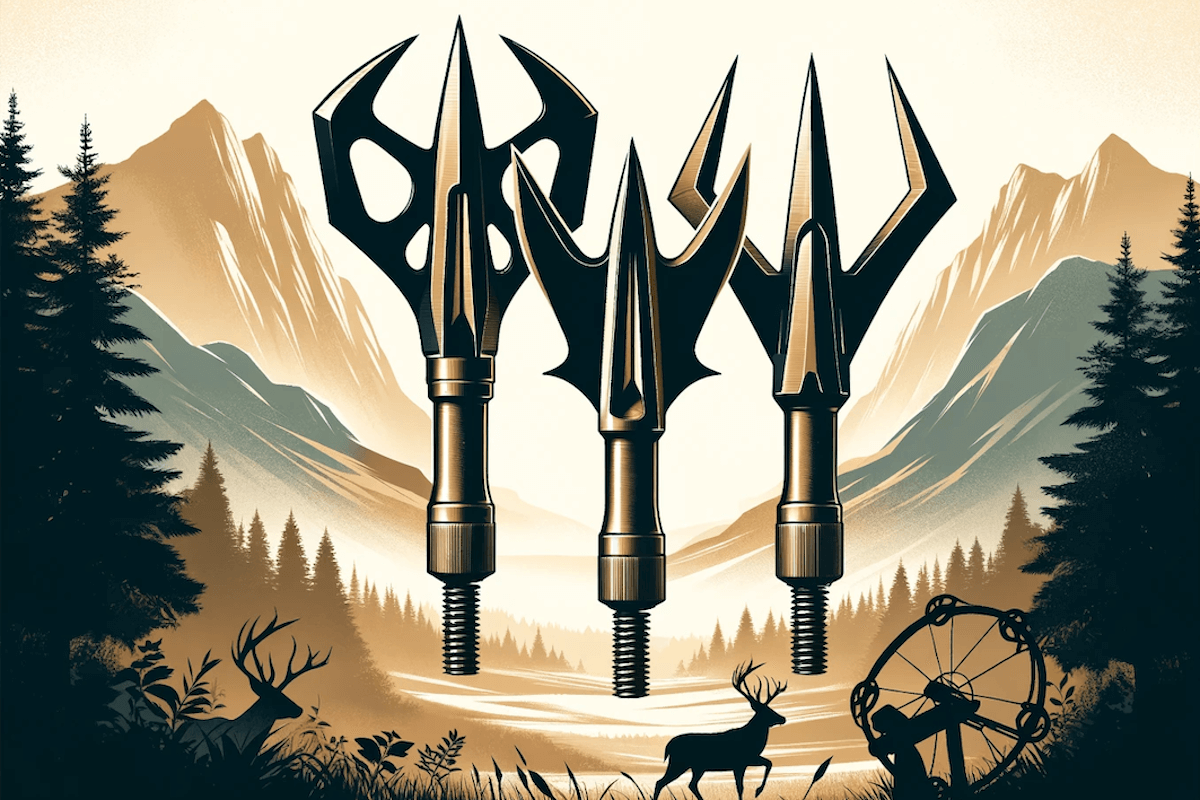
Broadheads matter because they are essentially the point of contact between the hunter and the game. A quality broadhead can mean the difference between a clean kill and a wounded animal. Hunters care deeply about this, not just for ethical reasons, but also because a well-made broadhead can enhance their hunting experience by providing reliability and peace of mind when the moment of truth arrives.
- Accuracy: A broadhead’s flight path should mimic that of a field point.
- Penetration: Deep penetration is crucial for quick and humane kills.
- Sharpness: Razor-sharp blades lead to greater blood loss and a faster game expiration.
- Durability: Broadheads should be able to withstand the impact of hitting bone and still remain intact, and withstand impact in a bag or case.
What are the best broadheads?
When I first took up the sport, I assumed all broadheads were created equal—I couldn’t have been more off-target. My early days were marked by frustration; broadheads that looked wicked cool but couldn’t punch through hide or, worse, ones that broke upon impact.
I learned quickly that flashy advertisements and cutting-edge looks don’t always translate to a broadhead you can lean on when you’re out in the thick of the woods. It’s about what happens after the arrow leaves the bow, not how stylish it looks on the rack.
A broadhead, after all, is the business end of your bowhunting setup—the point that’ll make true contact with the animal. Now, let’s notch an arrow and dive into the specifics that make these broadheads worthy.
1. Best fixed blade broadhead
Why I picked it
I chose the G5 Montec broadhead for its simplicity and consistency. With its one-piece steel construction, there’s no need to fuss with parts, and I can trust it will fly true every time I lose an arrow. I’m willing to pay a bit more for that reliability, shot after shot.
The Montec delivers on key benefits I look for in a broadhead:
- Penetration Power: The tapered blades drive deep into the vitals for quick, ethical kills
- Durability: It can smash through bone and still be re-sharpened after
- Accuracy: I can practice with field points, knowing the broadheads will hit the same spot
Who it’s for
The G5 Montec broadhead is ideal for seasoned bowhunters looking for a no-frills yet deadly, consistent fixed blade. Its simple design means minimal upkeep, so hunters can focus on their shot. With bone-crushing penetration power, it’s perfect for going after big game like deer, elk, and bears. For hunters who prioritize reliability over flash and want to see fast reliable bow down the scope, the Montec delivers accuracy and stopping power hunt after hunt.
What people are saying
Other hunters seem to agree that the G5 Montec is a broadly reliable choice. Reviewers praise its durability, saying the solid steel construction withstands bone hits and is still easily re-sharpened. Many also appreciate the consistency with field points for practice. While some feel the price is higher than competitors, most agree the quality is worth the extra cost.
Some do warn that the design is not the most innovative out there. But for hunters seeking a dependable, no-fuss broadhead, the consensus is the Montec delivers accuracy and stopping power season after season.
2. Best mechanical
Why I picked it
I chose the G5 Megameat for its rugged durability and massive cutting power. I want a broadhead that can smash through heavy bone and keep flying true. With its replaceable steel blades, this heavyweight can withstand repeated, brutal impacts.
The Megameat really delivers key benefits:
- Stopping Power: The 2” blades create huge wound channels to quickly take down big animals
- Penetration: It powers through thick bone to reach vitals for humane kills
- Toughness: All steel build stand up to repeated bone hits
Who it’s for
The G5 Megameat is ideal for diehard bowhunters pursuing massive big game like moose, elk, and buffalo. With its heavyweight 100-grain design and huge 2” cutting diameter, it has the power to humanely harvest giant animals. Hunters demanding complete pass-through penetration on thick-boned beasts will love this broadhead. It’s made for the biggest game out there.
What people are syaing
Fellow big game hunters say the megameat causes devastating damage even on enormous animals. They describe giant exit wounds and short blood trails on elk and moose. Reviews mention the all-steel construction withstands repeated bone hits. Some caution, the blades can break on really severe impacts. And a few wish it was mechanical for more compact carrying.
But for big game hunters wanting a rugged powerhouse, the consensus is the Megameat delivers unmatched penetration and durability.
3. Best for long-distance
Why I picked it
As a bowhunter using a heavy draw weight, I want a broadhead that can create massive wounds without sacrificing aerodynamics or reliability. The Grim Reaper Carni-FOUR delivers with its unique 4-blade staggered design that flies true while giving me the largest entrance hole possible. I’ve dropped deer in their tracks with these mechanicals.
The major benefits include:
- Large cutting diameter: With its huge cutting diameter and delayed blade deployment, the Carni-FOUR provides instantaneously lethal wounds that lead to short blood trails and quick recoveries.
- Staggered blades: The staggered blade design also improves flight compared to standard 4-blade broadheads.
Who it’s for
The Carni-FOUR is ideal for bowhunters using heavier draw weights and arrow setups. With momentum and kinetic energy on their side, these hunters can take full advantage of the large cutting diameter to create immediately incapacitating wounds. This broadhead pairs especially well with arrows over 400 grains. The Carni-FOUR is also great for hunters who want the bone-crushing power of a fixed blade combined with easier tuning of a mechanical.
What people are syaing
Other bowhunters say the Carni-FOUR flies true and delivers devastating wounds just like a fixed blade. They mention getting complete pass-through shots even on bone, leaving massive exit wounds. Hunters report dropping deer instantly with well-placed shots using these broadheads. Some do caution that the large cutting diameter requires proper shot placement to be lethal and avoid non-fatal wounds. Overall, reviews indicate the Carni-FOUR performs reliably and as advertised when used with sufficiently heavy arrow setups.
Things to consider when buying a broadhead
When purchasing crossbow broadheads, the decision should be guided by the following considerations to ensure optimal performance:
- Purpose: Choose the type of broadhead based on your activity. For hunting, select a broadhead that matches the game you’re pursuing. Larger animals require broadheads with more cutting power and durability, while smaller game can be hunted with less aggressive broadheads.
- Weight: Broadhead weight affects the bolt’s flight and penetration. Match the weight to your crossbow’s specifications and the intended game. Heavier broadheads tend to fly slower but offer more kinetic energy for greater impact, whereas lighter broadheads fly faster with less impact.
- Blade Type: Fixed-blade broadheads are known for reliability and strength, suitable for larger game with thick hide. Mechanical (or expandable) broadheads have retractable blades that offer larger cutting diameters and are often used for a cleaner pass-through shot, ideal for smaller game.
- Cutting Diameter: A larger cutting diameter can cause more damage and lead to a quicker takedown, but it can also mean a loss in penetration depth. Choose a cutting diameter that balances the need for impact damage and penetration appropriate for the game size.
- Material and Construction: Look for broadheads made from high-quality materials that can maintain sharpness and withstand impact. Broadheads constructed from a single piece of metal are typically more durable.
Dos and Don’ts of Choosing Hunting Broadheads
Selecting the right broadhead is essential, and there are key dos and don’ts to consider to ensure you make the right choice for your hunting needs.
| Do | Don’t |
|---|---|
| Do prioritize accuracy and flight consistency. | Don’t choose broadheads solely based on price. |
| Do consider the game you’ll be hunting. | Don’t overlook the importance of penetration. |
| Do ensure the broadheads match your bow setup. | Don’t ignore blade sharpness and quality. |
| Do test broadheads before the hunting season. | Don’t forget to check local hunting regulations. |
Advantages and disadvantages of using different broadheads
Choosing the right broadhead is a balancing act, where the pros and cons vary based on the design, material, and intended use. Let’s look at the advantages first.
Advantages
- Improved accuracy for a cleaner shot and better chances of a hit
- Deep penetration for a quick and ethical kill
- Razor-sharp blades for causing maximum damage and ensuring a blood trail
- Durable materials mean they can be used multiple times, offering better value
Disadvantages
- Higher costs for premium models can be prohibitive for some hunters
- Specific broadheads may require bow adjustments and tuning for optimal performance
- Mechanical broadheads have more potential points of failure compared to fixed blades
- Broadhead blade sharpness can deteriorate quickly, requiring regular maintenance
Additional hunting broadhead tips
Selecting and using broadheads effectively goes beyond just the purchase. Here are some additional tips to make sure you’re getting the most out of your choice:
- Practice makes perfect: Regularly practice with a target to get a feel for how your broadheads fly.
- Regular maintenance: Keep your broadheads sharp and in good condition; dull blades can cause unnecessary suffering and a lower chance of recovery.
- Match the broadhead to the prey: Heavier broadheads may be better for larger game due to their increased penetration power.
- Stay informed: Keep up with the latest advancements in broadhead technology to ensure you’re using the best available.
- Know your crossbow – Whether you have a reverse draw, recurve, or compound crossbow, now what you have and how to use it.
Frequently asked questions (FAQ)
When it comes to hunting broadheads, there are always more layers to peel back. Let’s tackle some additional questions you might have that we haven’t touched upon yet.
How often should I replace my broadheads?
Broadheads should be inspected for damage after every use. If the blades are dull or damaged, they can often be replaced, extending the life of the broadhead. For those that cannot be resharpened, or if the structural integrity is compromised, it’s time for a replacement. Check the manufacturer’s guidelines, and always ensure your equipment is in top condition before heading out for a hunt.
Can I use the same broadheads for different types of game?
Yes, you can use the same broadheads for different types of game, but it’s important to choose a broadhead suitable for the size and species you’re targeting. Larger, tougher game typically requires a broadhead with greater penetration and durability, so choose accordingly.
Are there specific broadheads recommended for beginners?
Beginners should look for broadheads that are known for their durability and ease of use. Fixed-blade broadheads are often recommended for beginners because they are more forgiving and require less tuning. Always start with practice broadheads and consult with experienced archers or hunting guides.
Final thoughts
As we notch the final bolt in our quiver of knowledge, remember that choosing the right broadhead is a crucial step in your bowhunting journey. The options we’ve discussed here combine the pinnacle of design, functionality, and performance to ensure that when you’re out in the field, you have the confidence that your equipment won’t let you down.
How will choosing the right broadhead change your next hunting adventure? And did I cover everything you wanted to know? I read and reply to every comment. If you found this article helpful, share it with a friend, and check out my full blog for more tips and tricks on archery and hunting. Thanks for reading and may your aim be ever true.


